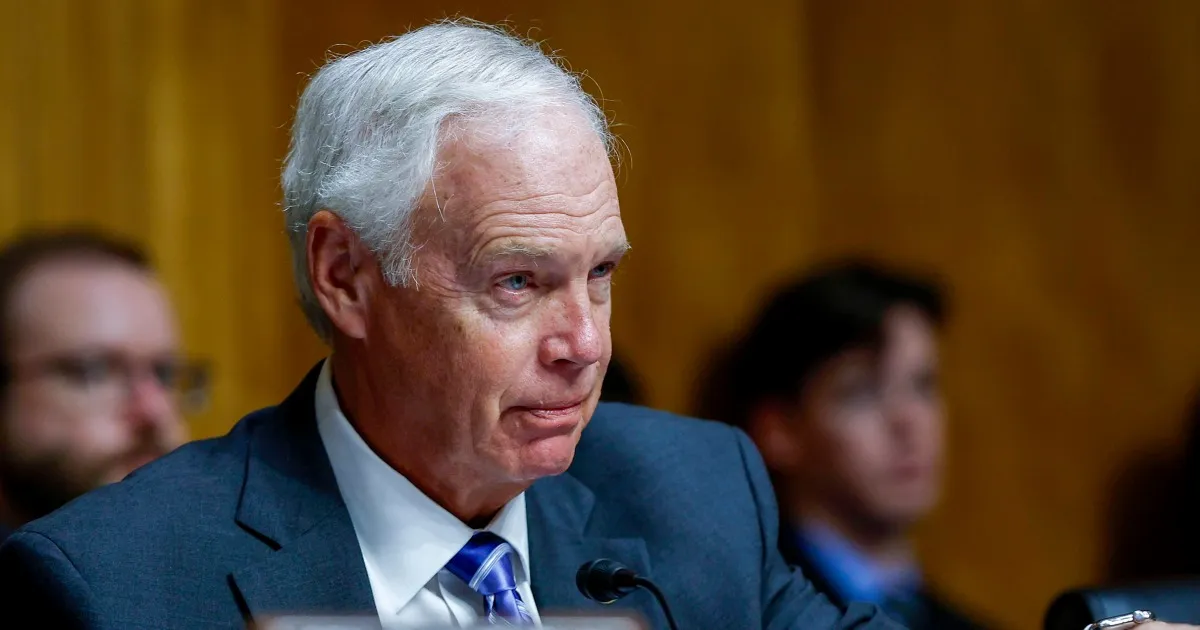
As House Republicans scramble to secure the necessary votes to advance a significant legislative package aligned with President Donald Trump's agenda, Senate Republicans are making it clear that the current version of the bill will not pass without substantial modifications. Sen. John Hoeven, R-N.D., emphasized that the legislation emerging from various House committees requires significant revisions before it can garner support in the Senate. "No. We’ll make changes," Hoeven stated. "We’ve been talking with the House, and there’s a lot of things we agree on. … But there’ll be changes in a number of areas."
It comes as no surprise to House members that their Senate counterparts are keen to make their mark on the final multitrillion-dollar package. Republican senators have already identified multiple provisions within the House measure that they intend to revise, including Medicaid concerns, funding for clean energy, and adjustments to spectrum policy, as well as addressing the bill's overall impact on the national deficit.
Sen. Ron Johnson, R-Wis., voiced his strong opposition to the emerging House legislation this week, asserting that it poses a significant risk of increasing the U.S. budget deficit. "I don’t see any scenario where it’s going to be deficit-neutral. That’s my problem," he told NBC News. Johnson calculated that the proposed legislation could increase the deficit by an alarming $4 trillion, highlighting that the attempted spending cuts amount to merely 1.3%, which he believes is "completely inadequate."
With a slim Republican majority of 53 senators, the party can afford to lose only three votes before the bill faces collapse in the Senate, as they have no prospects of winning support from Democrats. They've already lost Sen. Rand Paul, R-Ky., who is advocating for deeper spending cuts. Meanwhile, Democrats have intensified their criticism of GOP efforts to cut energy funding in the Inflation Reduction Act, underscoring the economic and national security benefits that the 2022 law provides.
Sen. Lisa Murkowski, R-Alaska, recently led a letter to Senate Majority Leader John Thune, R-S.D., along with three other Republicans, cautioning that the "termination" of certain clean energy tax credits established in 2022 would create uncertainty and jeopardize capital allocation, long-term project planning, and job creation across the broader economy. The House committee responsible for the tax provisions of the bill is seeking to repeal significant subsidies for electric vehicles while phasing out other clean energy tax incentives passed in the Inflation Reduction Act, which was signed into law by former President Joe Biden.
On Wednesday, Murkowski reiterated her stance, stating that she, along with Senators John Curtis, R-Utah, Thom Tillis, R-N.C., and Jerry Moran, R-Kansas, emphasized the need for a cautious approach toward energy tax credits to safeguard valuable investments. Additionally, Sen. Josh Hawley, R-Mo., has raised alarms regarding the proposed Medicaid cuts. The House bill suggests imposing work requirements and limits on provider funding, which have drawn heavy criticism. "I will not support Medicaid benefit cuts," Hawley declared, expressing concerns about the implications for rural hospitals in his state. He further articulated his stance on social media, stating, "I don’t want to see rural hospitals close their doors because funding got cut."
Senators are also looking to revise provisions regarding the Federal Communications Commission's spectrum auction authority. Sen. Mike Rounds, R-S.D., noted the need for corrections in the language concerning the spectrum issue, while Sen. Deb Fischer, R-Neb., insisted that the policy needs to be substantially improved. Furthermore, Sen. Thom Tillis, R-N.C., who faces re-election in a competitive state next year, indicated that the Senate must thoroughly review the House's proposed changes to Medicaid cuts, clean energy funding, and other policies before reaching a decision.
Additionally, Tillis expressed skepticism regarding the House bill's proposal to raise the cap on the state and local tax deduction (SALT) from $10,000 to $30,000, noting that no GOP senators represent high-tax blue states where this issue is particularly significant. "I think that’s an area where we’re going to need some consideration," he concluded.
As Speaker Mike Johnson, R-La., aims to guide the measure through the House Budget Committee, the path ahead remains fraught with challenges as Senate Republicans seek to refine the bill before any potential vote.